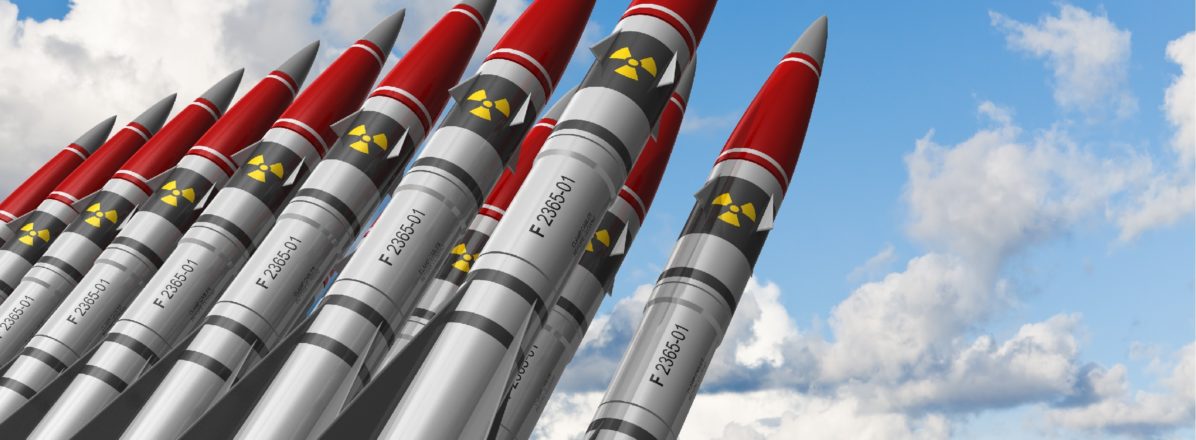A nation must think before it acts.

The 2018 Nuclear Posture Review (NPR) is a thoughtful, deliberative report that captures the big strategic issues facing the United States in the area of nuclear force structure.[1] This is surprising and welcome in my view. The previous two NPRs, in 2002 and 2010 respectively, were ideological tracts with little policy analysis of the strategic issues facing the United States. This one is different.
While the “details” of the NPR recommendations—a new ICBM, bomber, and submarines, updated command and control, etc.—are important, what is more important is the way the Review explains why these actions matter. It’s the strategic level of analysis that makes this NPR distinctive and interesting.
It does this in two ways. I will call these items the NPR’s two strategic themes. It’s important to separate these themes from the more detailed analysis arguing for a new ICBM or bomber, for example. That is, debate can focus on whether a replacement ICBM for the Minuteman III is a good or bad thing. We could get into numbers of missiles, survivability, operating cost, and accidental launch questions. But the choice of going ahead with a new ICBM depends on more than these. It also depends on the strategic context of world order as it is now developing. This is where the NPR is the most thoughtful in comparison to the previous reviews.
The first strategic theme in the 2018 NPR is the return to great power rivalry. It is a key point. I believe that any administration, Democrat or Republican, would have come up with this for several reasons. As the United States has focused on counter terrorism and wars in Iraq and Afghanistan over the last fifteen years, it has overlooked the evolution of major power rivals. The annexation of Crimea and the occupation of Ukraine and the artificial islands in the South China Sea are actions that cannot be ignored, even if we are unable to reverse them. Finally, the military buildups in China and Russia matter. They are upsetting the strategic balance in troubling ways. The United States cannot be sure of the scenarios or pathways to war that this could lead to, but falling behind looks like an even more dangerous choice.
The second strategic theme in the 2018 NPR is its signaling dimension. It says to other major rivals like Russia and China, “We see what you’re doing: breaking the Intermediate Nuclear Forces (INF Treaty), a doctrine for tactical nuclear weapons, fielding an autonomous nuclear torpedo with a high yield warhead. And we will respond. But the US has no interest in restarting a nuclear arms race beyond repairing the problems your actions have created.” “Moscow and Beijing should know that the US will not respond with ‘cheap talk,’ i.e. with words but little action. Not this time.”
This signaling by the United States conveys both action and restraint. The action part is made up of proposals for a replacement ICBM, bomber, smaller warhead for the D-5 and replacement submarines, and modern command and control.
However, there is also restraint. There is no mention in the Review of new weapons or new capabilities. The United States will replace weapons in its arsenal with those that have the same essential features. At a time when technology is disrupting the entire industrial and business universe, and where the United States leads the world in such innovation, this is a noticeable omission. Not only could the United States field dramatically new weapons, it’s something that we’re quite good at.
The omission of new improved weapons is like the Sherlock Holmes story of the dog not barking (Sir Arthur Conan Doyle, Silver Blaze). It’s a sign of what the United States could do, but has chosen not to do up to this point in time. It’s a self-imposed restraint, and, as such, it could be removed in the face of continued strategic modernization by rival major powers. Not mentioning technological improvements signals that the United States does not seek an arms race—even in a competition it is likely to win.
In the next few years, Russia and China will respond to the U.S. modernization program. They may escalate the arms race, or not. But the key point is that without some balance in nuclear forces the United States would be at a disadvantage in negotiating any kind of arms control system for the second nuclear age that we are now in. If Russia and China choose to go down the road of a strategic buildup, we cannot stop them. But the Untired States can ensure we stay in the game, so Russia and China do not get any one-sided advantages, military or political, from their investment.
My sense is that the NPR will receive bipartisan support in the broad center that defines how most people look at the U.S. nuclear posture. We are a long way from the 2009 Prague speech, where President Barack Obama called for a dramatic de-emphasis of nuclear weapons in U.S. strategy and further actions to eliminate these weapons altogether. Thinking along these lines had already started to change in the late part of the Obama administration. I am told by friends that in the past few years President Obama himself changed his views on whether it was still desirable to advance the Prague agenda.
The new NPR is a pivot to the geopolitical realities of the 21st century. By no means does it call for a new nuclear arms race. Actually, it signals restraint. But it adds a critical proviso. Unless restraint is given in return, the United States will be compelled to take more ambitious improvements in its nuclear deterrent posture.
[1] All references to the Nuclear Posture Review are to the draft pre-decisional document widely published online in January 2018. See for example https://assets.documentcloud.org/documents/4347479/Npr-2018-A.pdf



